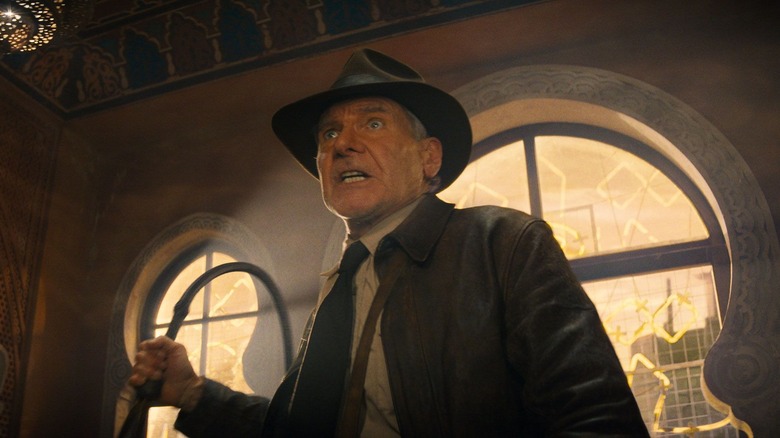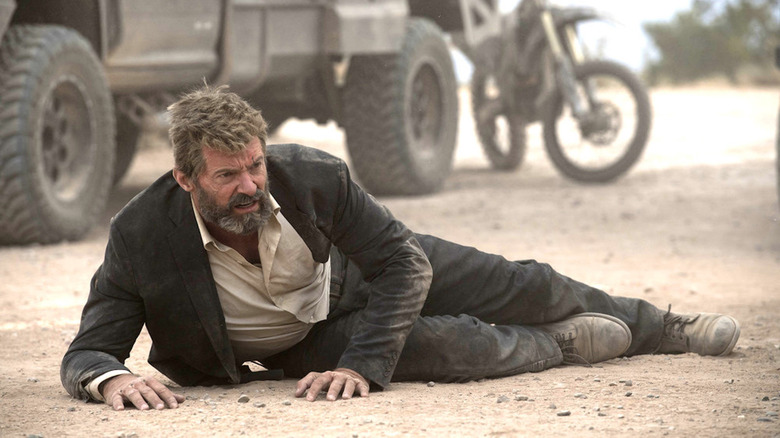There's A Common Thread Between Indiana Jones And Logan
Nothing lasts forever, not even in the movies. Heroes, one way or another, die. Sometimes they're put out to pasture because people stop buying tickets to thrill to their exploits. And sometimes, they have, as Spock sagely noted in "Star Trek VI: The Undiscovered Country," outlived their usefulness.
When that latter moment arrives for a once-beloved protagonist, you could do worse than to call in writer-director James Mangold. Few Hollywood filmmakers move more deftly between crowd-pleasing movies and prestige pictures. He's directed Angelina Jolie and Reese Witherspoon to Oscar wins, made an upscale slasher flick ("Identity"), and knocked out a serviceable B Western with A-list actors ("3:10 to Yuma"). His highs can be pretty high, while his lows are, thus far, no lower than 2001's "Kate & Leopold."
But over the last six years, he's proven particularly adept at crafting melancholy blockbuster send-offs to franchise favorites. 2017's "Logan," which stars Hugh Jackman as a dying Wolverine, is one of the very best superhero movies ever made. As for this year's "Indiana Jones and the Dial of Destiny," it was a marked improvement over the previous entry in the series (though not without its flaws), and a deeply touching farewell to Harrison Ford's adventuring archaeologist.
Aside from their ability to take a licking and keep on ticking, you might think these characters don't have a lot in common. Mangold, however, disagrees.
How to kill a hero
In an interview with Collider, Mangold revealed that, for him, the similarity between Logan and Dr. Jones is that they've both reached points "where the shtick they've been doing isn't working anymore." The world has moved on, and they're struggling to keep pace. He elaborated on this quality thusly:
"[I]t would apply to both movies that you're finding Indiana Jones in his seventies in the time of modernism, rock and roll, moon landings, triangulation, Red Scare, nuclear fears, the Vietnam War — that's a different world than the clarity and simplicity of the '30s, of a free world united fighting Nazis. It's a very different environment. And similarly, finding Hugh [Jackman's] character of Logan in a time of diminishing returns when his power isn't as great as it was, that, to me, brings vulnerability to the character, it brings a journey to the character."
Logan's fade is more physical. His regenerative abilities are rapidly diminishing; at a certain point, he's going to take a flurry of punishment from which there is no return. Obviously, Indy's racked up a load of mileage, but, particularly at the outset of Mangold's movie, we wince at his irrelevance in an academic world where he used to be revered. Enamored undergrads aren't mooning over his lectures anymore, while his colleagues bid him half-hearted adieus. Aside from his dingy apartment and a local watering hole, Indy is a man without a country.
"Dial of Destiny" is less successful as an action movie, but Mangold works wonders with the character. You don't leave the theater yearning for another go-round with Indy, but you may be curious to see Mangold take a crack at a final "Dirty Harry" movie. The man has a way with swan songs.

